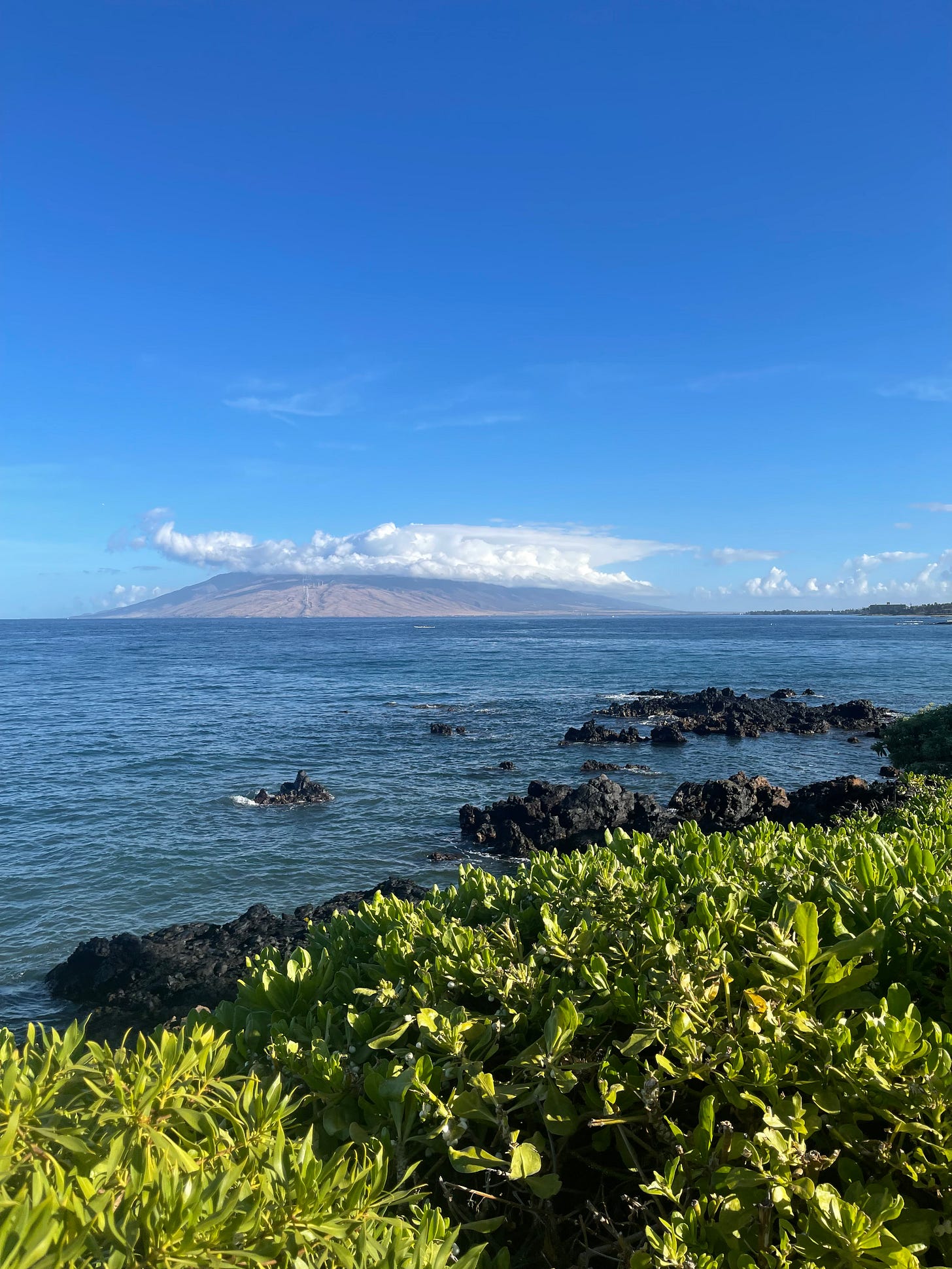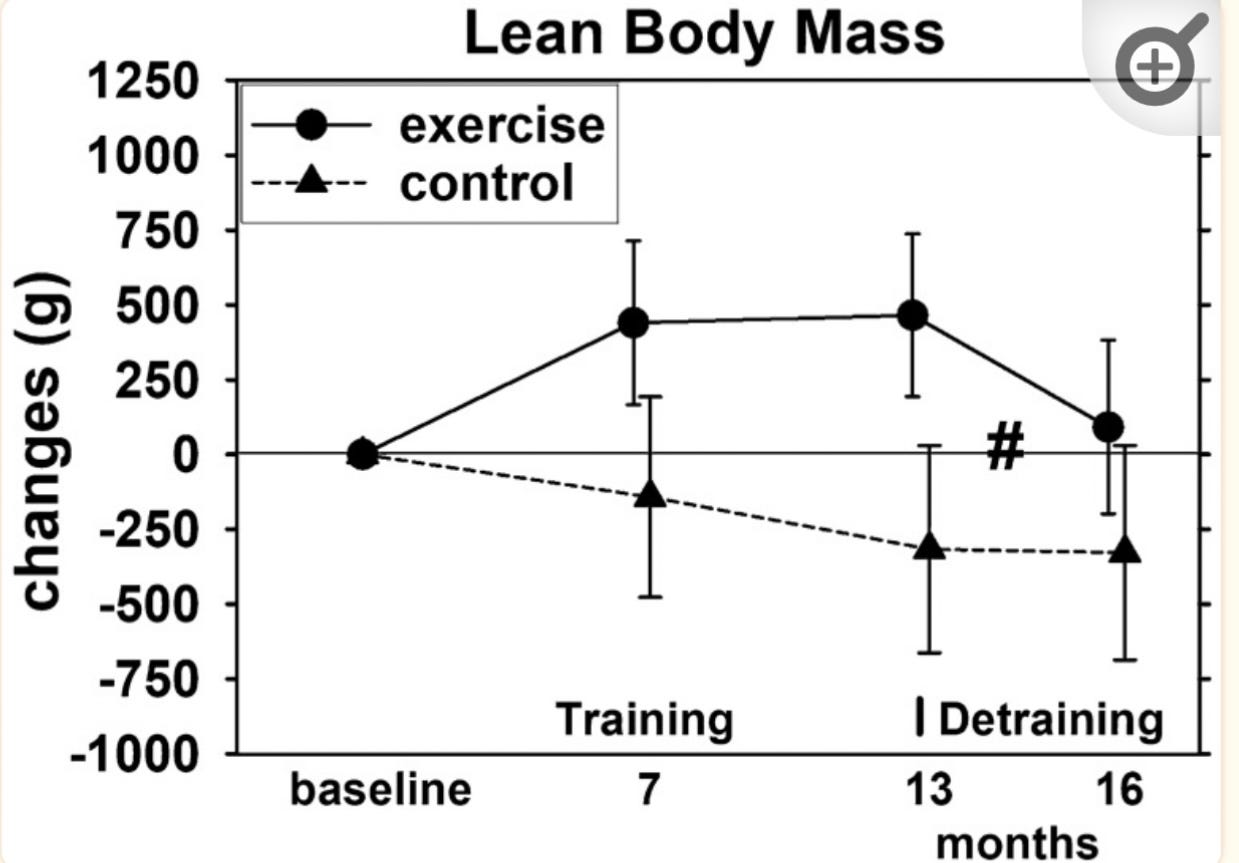I used to skip exercise while vacationing. Now I don’t and here’s why
Exercise is a midlife woman’s greatest tool, even on vacation
I’m just getting back from a week in Maui. Before I left, I asked the coach at my gym if he recommended any workouts for my trip.
“Don’t exercise, I mean be active and hike,” he said. “But eat good food and relax.”
That was my motto for a long time but I’ve noticed in the last five years or so I’ve changed my tune. If I’m going somewhere longer than a few days, I like to incorporate some type of structured exercise.
And I wanted to explain why along with some interesting research.
I want to exercise
I big part of my motivation to exercise on vacation is that it makes me feel good. And so I want to do it.
By “feel good” I mean it lifts my mood and increases energy and focus.
I notice this at home, too. I used to skip workouts all the time but when I do this now, I can feel a difference. Don’t get me wrong, I do take Sunday off and always have but I’m much more likely to go for walks and keep moving.
Exercise also helps me sleep, something I’ve become particular about. I’m just not willing to compromise my sleep.
I wonder if this basis for my newfound I-need-to-exercise-to-feel-good has to do with something I’ve run across in my research: “hypometabolism.”
This is something that happens with aging and menopause. Even though the brain is 2% of the body it takes 20% of glucose. The brain is a glucose hog!
As we age, our brains become less able to use glucose for fuel [hypometabolism]. And when estrogen declines, this happens even more (shocker). Our brain can use ketones to make up for this but it prefers good old fashion glucose.
What also plays a role in helping us utilize brain glucose is brain derived neurotrophic factor (BDNF), something that also decreases with age and menopause. In fact, one study linked low BDNF to memory issues in post menopausal women.
I’ve been on the lookout for ways to increase brain glucose and/or BDNF, and exercise is one of the key ways.
In a 2018 study, younger (18-30) and older (65-80) people free of medical conditions were assigned to a week high intensity interval training workout or a control group.
The researchers measured resting brain glucose and it was was higher in both exercising age groups compared to the control. Aerobic exercise is an established way to increase BDNF with higher intensity activity showing an advantage.
Perhaps the BDNF effect is why I want to exercise. Am I overthinking things?
It’s an important time at my gym
The week of my vacation we are doing two-rep maximums at my gym to test strength. These include the exercises we’ve been training for this rotation. Two rep max is basically the most you can lift in 2 reps with about 9 perceived exertion.
Although I did chest last Monday, I’m missing the most important one: legs. I want to see what my two-rep max is for closed squats so I did that at the hotel gym.
These types of workouts are new to me but I’m really enjoying seeing my progress. At this gym we write down how much we lift and track it.
And it’s very cool to see the numbers go up. Even when it’s just 5 pounds. It’s called progressive overload and it’s a process that takes time. I could try and do it on my own but I don’t have the bandwidth for it.
I just need to show up.
Here’s a video of my one-rep max for deadlift from the last rotation.
Will I lose what I’ve gained?
“Use it or lose it” is a common phrase referring to exercise as we age, especially maintaining or building muscle. But when I looked it up, one week break probably was not enough time to make my muscles crawl into a hole.
But the truth is there’s not enough quality evidence to know for sure, according to a review.
One study showed a week of bed rest results in significant loss. But I wasn’t staying in bed and have been generally active. According to a thoughtful review online, 3 weeks of “detraining” is when you could expect declines.
I looked for studies relevant to my age group (meaning not body building men in their 20s). It’s typically hard to find studies with midlife age participants.
There was a study with 12 untrained women age 60-74. The subjects participated in 6 months of strength training two times per week, and then stopped the program for one month between December 16- January 16 to reflect the holiday break.
One month of detraining was enough to reverse the beneficial effects of the 6-month program on physical mobility and executive function. Ouch.
Not all studies show this. Some show only partial declines but that may have to do with training experience.
The inconsistencies in the findings could be a function of the differences in the initial state of the volunteers, the design of ST program (e.g., frequency, volume, duration, and intensity), as well as the detraining periods
Another study looked at 13 months of aerobic and strength training in early, post menopause 48–60 year-old women who were osteopenic. After 3 months of discontinuing, lean body mass returned to baseline as shown below.
Consistency is key as we get older. It’s better to keep exercising than to go hard for a few months and stop. Research also shows that after gains, we can maintain muscle mass doing less so when life gets in the way, it’s okay to pick up some weights at home until you can get back to your favorite class.
And muscle memory helps so when you have been working out in the past, the body remembers when you pick it back up.
What does exercise on vacation look like?
For me exercise on vacation is different than the workouts I do at home. I usually get up very early but when on vacation I wake up naturally and enjoy morning coffee on the balcony.
One day I hit the gym in the afternoon and a 20 minute sprint interval and worked up to my 2-repeat squats. I ran a few times around 2-3 miles and did the elliptical for 30 minutes one afternoon in need of a pick me up.
I finally was able to do yoga on the beach our last day. Vacation should be a break from the routine and that is exactly what it was
It’s a personal choice
Half of my instagram followers exercise on vacation and the other half don’t. That is according to a poll I posted on my story.
We all have our own reasons and way of doing things. But for me exercise has become a tool I want to use wherever I go.
So tell me, do you exercise on vacation?





